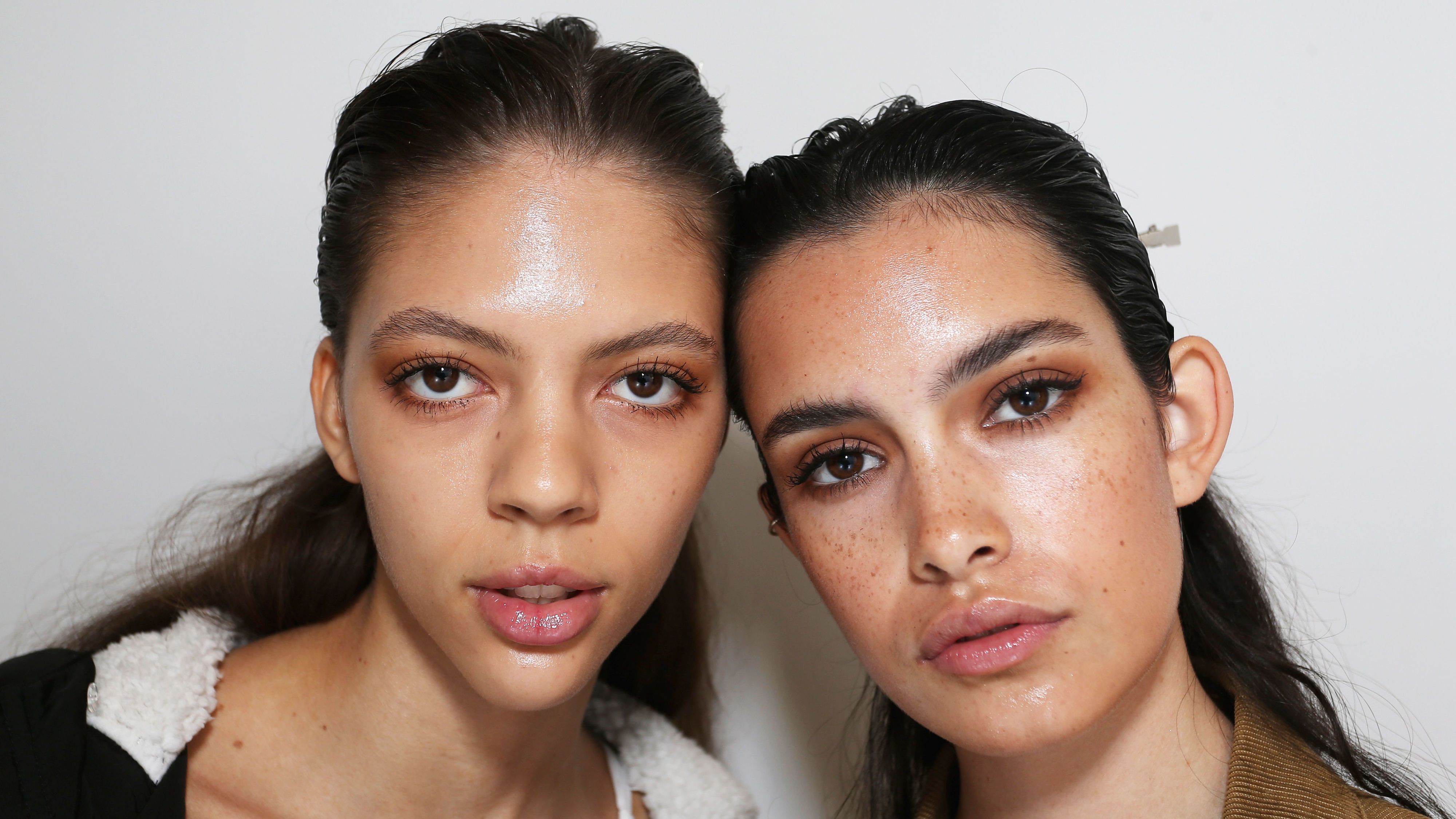9 Things Every Woman with Oily Skin Should Know
For when your sebaceous glands are doing the most.

Fewer things are more frustrating than an oily T-zone, especially when you feel like you're taking all the proper measures, only to gleam in all the wrong places. To make sure that you have a well-rounded understanding of what exactly is causing excess oil production, we consulted the experts to break it down. From your skin regimen to makeup routine, here's everything you need to know.
1. You're not alone. "Oily skin is an extremely common problem with women," explains dermatologist Rachel Nazarian, M.D., at Schweiger Dermatology Group. "We can experience super oily times of the month, on our face and even in our scalp—making our hair look dirtier than normal." Why? Hint: It begins with an H, but we'll get to that later...
2. Your hormones have a LOT to do with it. And it's often not in your control, unfortunately. "Your monthly hormonal cycle, which fluctuates week to week, can trigger increased activity of the oil glands in the skin, even on your scalp." she says. "This means you may feel like your skin is getting oilier and shinier depending on time of your cycle."
3. It's also genetic. "The number of glands and their activity level is actually a pretty complex and specific characteristic of each individual and it's influenced by your genetics, meaning your skin may, at baseline, produce more oil, or you may have more oil glands on your face then someone else."
4. The way you cleanse is key. If you don't wash your face properly, you either don't remove enough of the oil or remove too much, leaving skin irritated and inflamed—possibly even triggering more oil secretion in the process.
"Skin that is being over-washed or over-cleansed will sense that the barrier is being stripped," says Nazarian. "And although you can over-dry your skin this way, many patients will notice their skin looking shinier as their oil glands try to balance things out."
She suggests washing twice a day with gentle cleansers, like a Dove Beauty Bar or Cetaphil, that remove oils without stripping the natural moisture barrier.
Stay In The Know
Get exclusive access to fashion and beauty trends, hot-off-the-press celebrity news, and more.
5. You need to be careful with spot treatments. "A 2% salicylic acid spot treatment is better than one with benzoyl peroxide, which tends not only to be too drying, but can also bleach your pillowcases," says dermatologist Dr. Amy Wechsler. "When you dry out oily skin too much, your skin responds by producing more sebum, which leads to pimples."
6. Your makeup could be making things worse. "I see many patients that don't realize the products they're putting on their skin can be making their oiliness worse," says Nazarian. "Avoiding heavier products allows your skin to continue getting feedback from its surroundings and in many ways 'breathe' more effectively, avoiding unnecessary excess oil production."
7. Oil-free products + loose powder are your best friends. An oil-free matte or water-based foundation will help to keep your face beat shine-free as the day wears on. Dr. Wechsler also recommends mineral makeup because it's noncomedogenic and won't clog pores.
A primer can be another great way to keep things in tact, but only if it's oil-free and non-drying. But no matter what kind of formula you're working with foundation-wise, loose translucent powder is non-negotiable. Stipple it all over the face, with a little extra in your most oil-prone areas.
8. Retinoids can help. "At night, apply an oil-free retinoid cream, like Neutrogena Rapid Wrinkle Repair Moisturizer, which helps decrease oil production over time. There are even pills that your dermatologist can prescribe that will decrease oil production, and also help decrease acne breakouts, such as spironolactone."
9. Legend has it you'll get wrinkles later in life. "Though the lore hasn't been scientifically proven, drier skin tends to look more creased because it reflects less light, appearing duller," explains Dr. Wechsler. "Hydrated skin has a more intact surface, and lines fill in a bit with moisture." So there's that.
Follow Marie Claire on Facebook for the latest celeb news, beauty tips, fascinating reads, livestream video, and more.
Lauren Valenti is Vogue’s former senior beauty editor. Her work has also appeared on ELLE.com, MarieClaire.com, and in In Style. She graduated with a liberal arts degree from Eugene Lang College, The New School for Liberal Arts, with a concentration on Culture and Media Studies and a minor in Journalism.